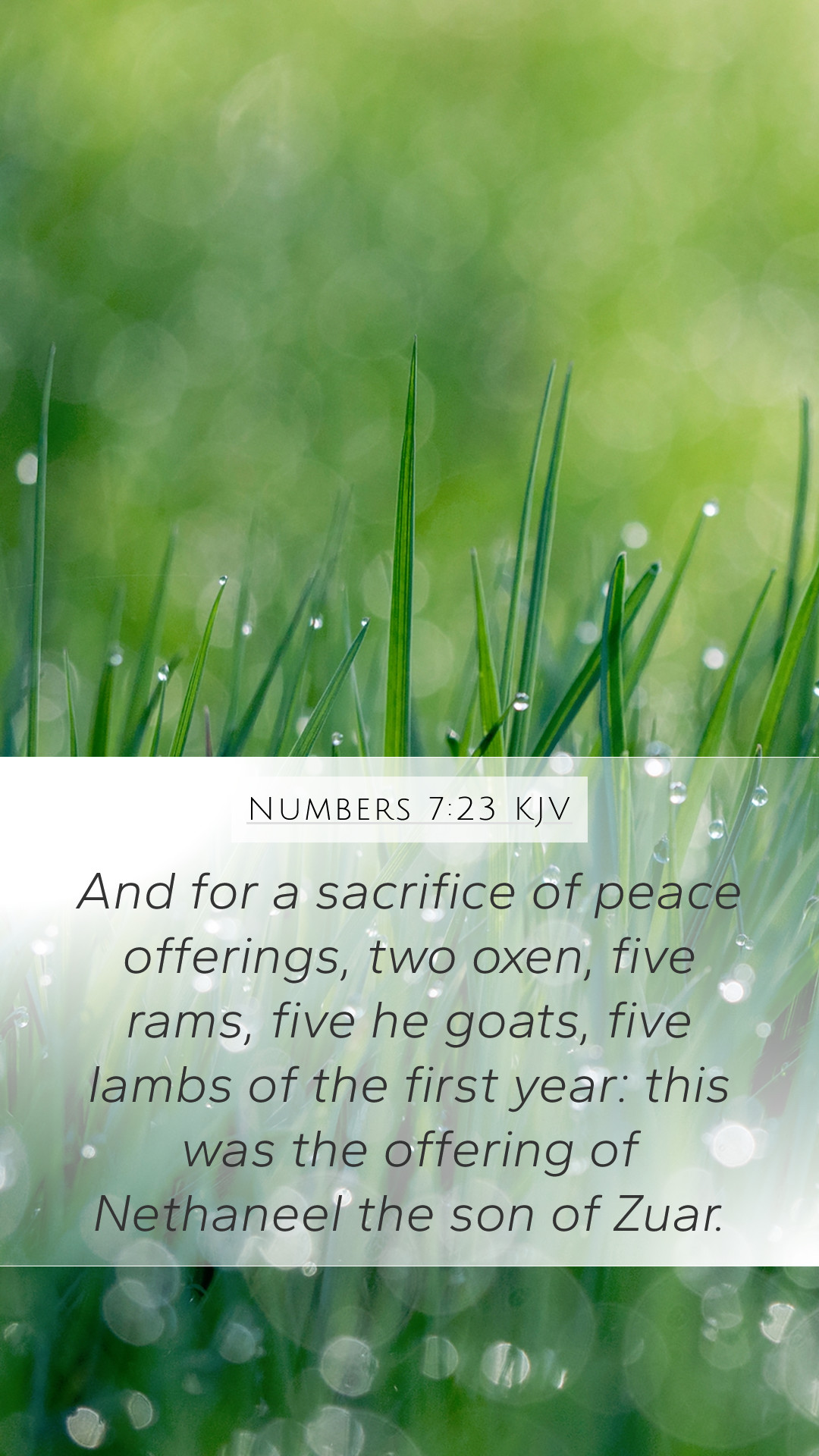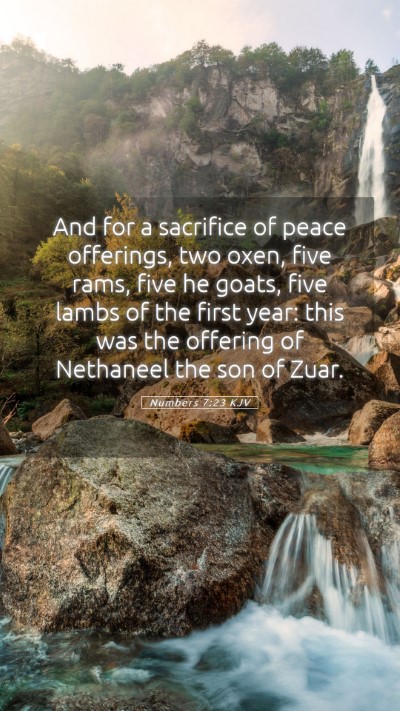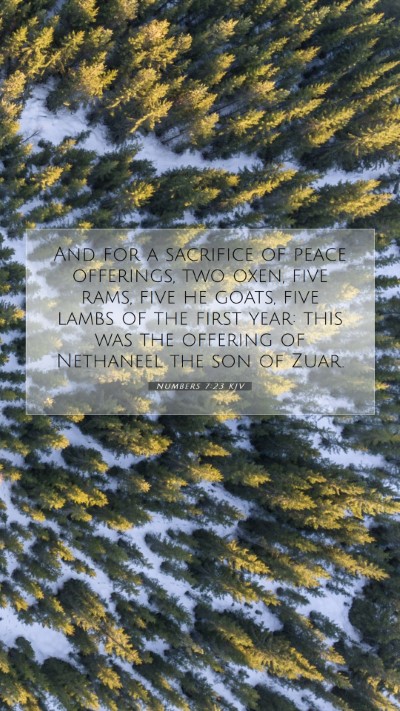Understanding Numbers 7:23
Numbers 7:23 states:
"His offering was one silver charger, the weight whereof was a hundred and thirty shekels, one silver bowl of seventy shekels, after the shekel of the sanctuary; both of them were full of fine flour mingled with oil for a meat offering."
Overview
This verse is part of a larger narrative concerning the offerings made by the leaders of Israel at the consecration of the altar. The offerings were significant as they represented the offerings of obedience from the leaders of the tribes.
Bible Verse Meanings
- The Significance of Offerings: The offerings made were a testament to the leadership and dedication of Israel's leaders to God.
- Measurement of Value: The weights mentioned, such as "one silver charger" and "one silver bowl," emphasize the importance placed on the quality and quantity of these offerings.
- Symbolism of Flour and Oil: The fine flour mingled with oil symbolizes purity, richness, and the essence of worship, offering a deep representation of complete dedication to God.
Bible Verse Interpretations
Commentators like Matthew Henry interpret the offerings as an expression of gratitude and recognition of God's provisions. Albert Barnes notes the precision of the measurements, suggesting that detailed worship reflects the seriousness of approaching God. Adam Clarke emphasizes the role of such offerings in fostering community and spiritual unity among the tribes of Israel.
Matthew Henry's Commentary
Henry describes the offerings as not merely a transaction but as a covenant promise of dedication. Each offering, while appearing simple, constituted a vital part of the community's identity and relationship with God. He further illuminates the practice of separating the best portions for offerings as a reflection of reverence and honor due to God.
Albert Barnes' Commentary
Barnes explains that the amounts indicated the wealth and sincerity of the leaders' offerings. The mention of silver reflects the value and seriousness of the commitment being made. He also speaks on the communal aspect of the offerings and how they align with the larger sacrificial system of the Israelites.
Adam Clarke's Commentary
Clarke sees the offerings as a foreshadowing of spiritual offerings—the true offering of our lives in service to God. He suggests that looking beyond the physical act of offering to the intention of the heart is essential and that these acts were to encourage communal worship and establish God’s presence among His people.
Application of Numbers 7:23 in Daily Life
This verse encourages believers today to consider the value and intent behind their offerings to God, whether in financial donations, time spent in service, or acts of worship. It reflects on how Christians can express their dedication through tangible acts of faith and the importance of community in worship.
Bible Cross References
- Leviticus 2:1-2: This passage discusses the grain offerings, linking directly to the flour mentioned.
- Exodus 30:13: Discusses the shekel as a measure of worship and offerings in the sanctuary.
- 1 Chronicles 29:14: David speaks about offerings and generosity, mirroring the themes found in Numbers 7:23.
Insights for Bible Study Groups
This verse can be a point of discussion in Bible study groups focusing on thematic elements of worship and offerings in both the Old and New Testaments. Participants can explore historical context, discussing how offerings were viewed in ancient Israel versus modern-day practices of giving and dedication to God.
Conclusion
Numbers 7:23 highlights more than just a record of offerings; it invites an exploration into the essence of worship, the attitude behind giving, and the responsibilities of communal leadership in reflecting God’s glory. By examining this passage, believers gain deeper Bible study insights that challenge them to engage in meaningful worship.


